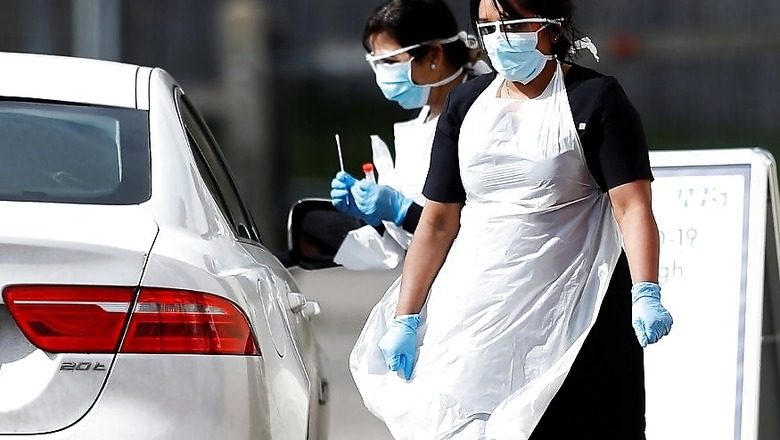
views
The ongoing coronavirus crisis could lead to global depression as countries across are world are resorting to lockdowns to combat the deadly viral infection, according to an expert.
The coronavirus pandemic has claimed over 43,000 lives worldwide, 30,000 in Europe alone, since it emerged in China's Wuhan city in December last. The virus has infected over 870,000 people globally, prompting the United Nations to describe it as humanity's worst crisis since World War II.
To halt the spread of COVID-19, countries across the world have implemented lockdowns, forcing people stay indoors. As industries shut down for undetermined periods and entire workforces are forced to stay home, scenes of economic desperation and unrest are emerging across the globe.
"If the quarantine lasts more than six months then we are looking at economic depression," said David Meyer, Associate Professor of Security and Global Studies at the American University in the Emirates (AUE).
He said following the coronavirus crisis, the advantages of China's low-cost labour will now have to be looked into in the context of security.
Meyer, who is also the Programme Director of Master of Arts in Diplomacy at AUE's College of Security and Global Studies, was addressing an online symposium organised by Abu Dhabi-based think tank TRENDS Research and Advisory on Wednesday.
Experts at the symposium, 'Confronting the Challenges of COVID-19: A New Global Outlook', highlighted the ongoing struggle between forces of globalisation and protectionism, while emphasising on the need for a collective response to the COVID-19 challenge.
They discussed the lessons learned from the pandemic and the growing need for a concerted and a collective approach to tackle the challenge.
Besides looking into the adequacy of the medical response, they also underlined the geostrategic and economic fallout of this public health crisis which threatens to derail the global economy.
Gulfaraz Khan, Professor of Viral Pathology and Chair of the Department of Medical Microbiology and Immunology at the College of Medicine and Health Sciences, UAE University, said the scientific community is united against COVID-19 at one end of the spectrum but a lack of preparedness has also been exposed.
Khan pointed out that the world failed to identify the threat early.
"We had approximately a month to look at the outbreak even though the disease was spreading. The majority of the world's cases happened after February so we need to learn lessons as a global community. It is absolutely essential to do our best in research and development to prevent another global pandemic from killing so many people," he said.
Khan ruled out the possibility of a vaccine coming out soon.
"It could take 12-18 months if you add the time needed in mass production and in making it available around the world," he said.
Hussein Ibish, Senior Resident Scholar at the Arab Gulf States Institute in Washington, said it is not yet clear whether parochialism will triumph over populism in the aftermath of this crisis.
"There is a discourse emerging from Europe that may not reflect the ground reality. There seems to be an adrenaline rush for insularity and parochialism promoted by populism which is not helping," he said.
Ibish said, "It is very remarkable that China is using the pandemic to promote its system and its international brand and leadership."
Sharing China's experience of the coronavirus, Yong Wang, Director of the Centre for International Political Economy at Peking University, said China did the right thing by taking very tough measures such as locking down Wuhan, the epicentre of the virus.
"Chinese scientists shared genetic sequencing, which helped in data compilation and intelligence gathering to tackle the virus. The pandemic is under control in China and factories and companies are opening now. However, the government is still applying a very cautious approach," he said.
Maurizio Barbeschi, Adviser to the Executive Director, World Health Emergencies (WHE) Programme at the World Health Organisation said it is not just the peak of the pandemic, but also the bumps and re-entry to normalcy will have to be managed.
"Even vaccines may have to be handled with extreme care for not creating groups of haves and have-nots," he said.
















Comments
0 comment